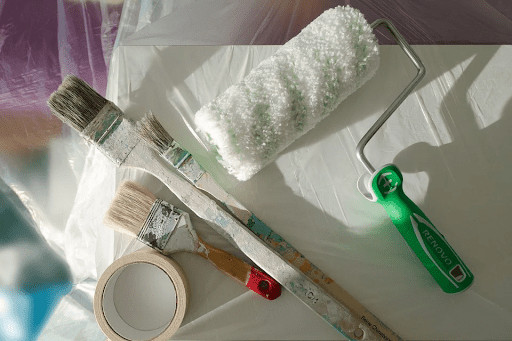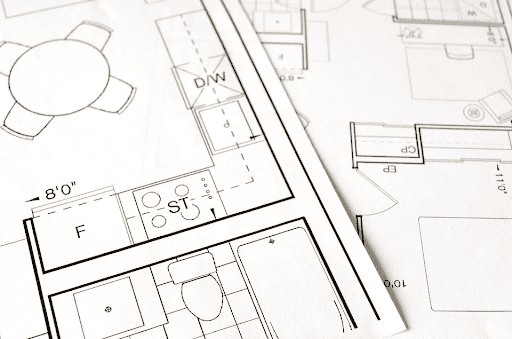Renovating your house is a big task. You need to be aware of the many ways you can go about it, and which one will work best for you. There are so many things that have to be considered when renovating: budget, timeline, style preferences, etc. We’ll break it down into 7 things you should have in mind before you start. We hope this article will help guide you in making decisions about how to make renovations happen!

1. Have a clear idea of what you want
Contents
Before starting any renovation project, it’s important that you have a clear idea of what you want. This means having a good understanding of the style of your home, the materials you want to use, and the overall budget you’re working with. Draw out a plan, make a list of materials needed, and try to visualize what you’ll end up with once everything is done. Be sure to consult your family members and friends for their input. After all, they’re living with these changes too!
Renovating your house can be an expensive business, both in terms of money and in terms of how long the whole process takes. The more carefully you plan things out beforehand, the stronger your final project will be. There’s no need to rush. You can take as long as you want before actually starting the renovation process.
2. Do it yourself (or not)
Some people like doing renovations themselves, others don’t have that kind of time. Hiring professionals is always an option, but it comes at a cost too. Be realistic about what you can do by yourself and what would be better achieved with professional help. The same goes for all work involved in renovating: electricity, plumbing, etc. Even if you hire someone else to do the job for you, there are still things you should know so that everything gets done properly. For example, if you want to renovate your walls, you need to get the right grit sandpaper and sanding tools and know how to use them properly. Another example: if your garden drainage is not good, you’ll need to deal with it somehow before doing any other work on the exterior of your house. You can’t build and renovate without knowing how to do basic things like this. It’s important that you have some knowledge about what you’re doing, at least enough to follow instructions and know when something’s wrong.
3. Get professional help
Renovations can be complicated and the more professional help you get, the better. It’s important to make sure your contractor is clear about what kind of renovation plan you have in mind, as there are lots of things that need to be considered before starting any work on a home. You should also consult an architect or engineer if it’s required (for example, if you’re planning to put up a pool).
Being realistic about what you can do by yourself and what would be better achieved with professional help is always smart. It will save time and money too! Just imagine how much time and effort we saved by not doing all our renovations ourselves. We’d still be trying to figure out where to start!
4. Get to know your neighborhood laws, rules, and regulations
Before starting renovations on your home or looking for a place to live, you should check with the local council about what you can do in terms of renovation work. They will let you know if there are any restrictions regarding building work in the area if certain houses are protected under heritage laws etc. Check what kinds of repairs are allowed on the property too – sometimes major structural work requires approval from the council before it can start. All this is important information to consider before doing anything else because you might miss something later that makes continuing with the renovations problematic.
5. Tell your insurance company
It might be a good idea to let your insurer know about any renovation you’re planning or have recently completed because it could affect your policy, for example, it might result in a higher premium if you decide to make structural changes to your home. It is better to inform them before they start rather than after the work has been done and problems arise because then they may ask you to pay extra for things like “dangerous conditions”.
6. Think about the noise you’ll be making
Renovations can be noisy, so you need to think about how this might affect your neighbors. If you plan on doing the work during the week, especially if it will go late into the evening, consider if there are any restrictions in terms of noise for this area at certain times of the day. It’s a good idea to talk to your neighbors if possible before starting renovations and find out what they think regarding things like noise (especially if they live close by) and whether or not there are any laws regulating renovation noise levels in a place where you live.
7. Think about things like aesthetics, practicality, how future changes might look
Finally, don’t forget that part of a renovation or redecorating is making decisions based on aesthetics, but also considering how functionality will change as a result of what you’re doing. For example: if you’re putting up new tiles in the bathroom, consider that you might want to change the showerhead or at least think about it.
As far as practicality goes, ask yourself whether every decision you’re making is really worth it for how much time and effort will go into doing what you’ve planned. It can be sometimes better to choose a cheaper option even if it’s not as aesthetically pleasing because there are more important things than looks. Of course, it is always best to do what you love, but at times there are sacrifices to be made.

The most important thing to keep in mind when renovating your home is that you need to be realistic about what kind of renovation plan you have in mind. You should also understand the local laws, rules, and regulations as they may restrict certain types of renovations. Finally, make sure you tell your insurance company before any work begins because it could affect your policy down the road.